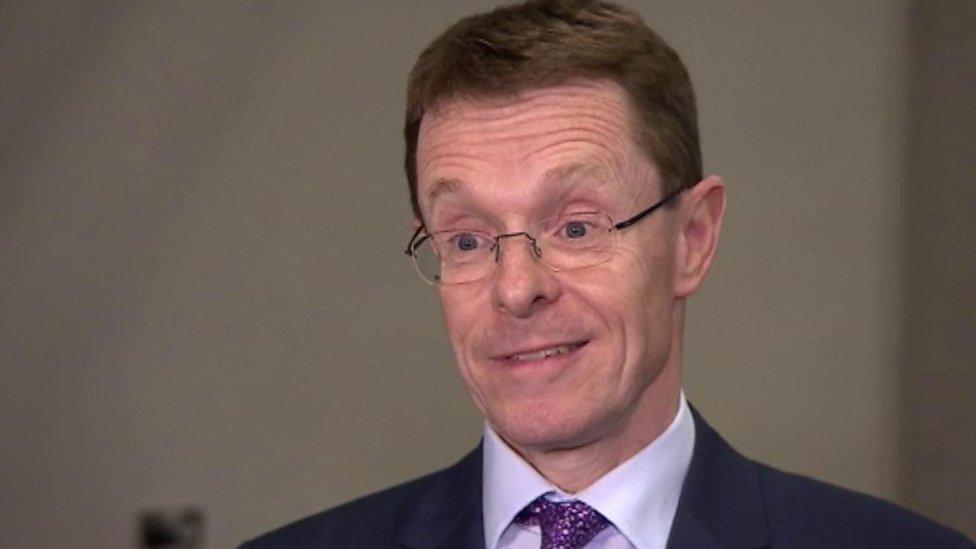Covid-19: Bath and West Showground to be mass vaccination centre
- Published
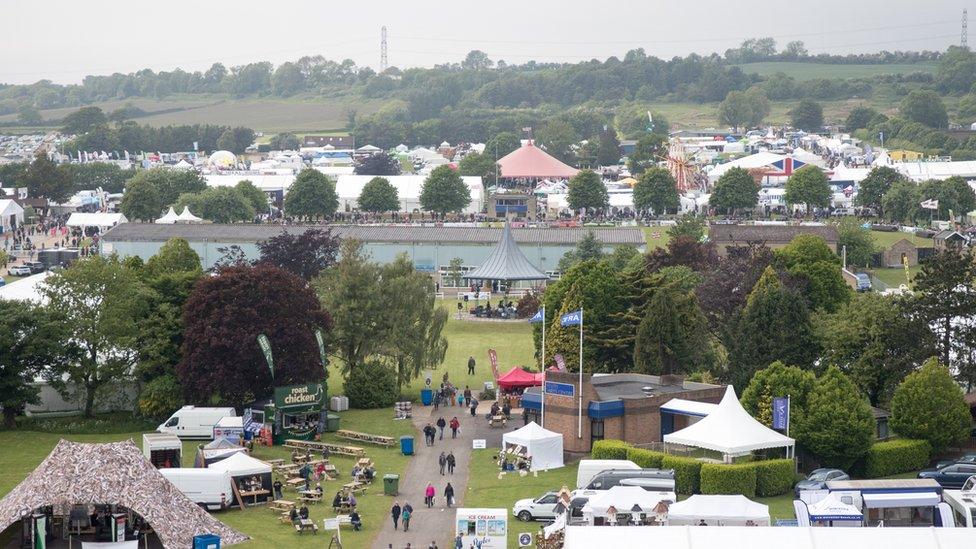
The Bath and West Showground is used for the Royal Bath and West Show
A major Somerset venue expects it will be up and running as a mass coronavirus vaccination centre from the end of January.
The society that manages the Bath and West Showground said NHS staff have been working there since December.
Bristol's Ashton Gate Stadium is being used as one of seven mass vaccination centres across England from Monday.
The government wants to vaccinate 15 million people in the UK by mid-February.
The Shepton Mallet showground is owned by the Royal Bath and West Society.
Rupert Cox, the society's chief executive, said: "We're really delighted to be involved. I suppose our frustrations are that we were having conversations with the NHS in early December and we thought we were going to be open last Monday.
'Slippage'
"Now we're being told we're not going to be open for a couple of weeks. There's already a bit of slippage."
He said the showground was "pretty well ready" to be used as a vaccination centre. Its restaurant will be used for registrations and the theatre to train volunteers who will administer the vaccine.
Mr Cox said he was hopeful the vaccine rollout might mean the showground could be used for events such as the Royal Bath and West Show later this year.
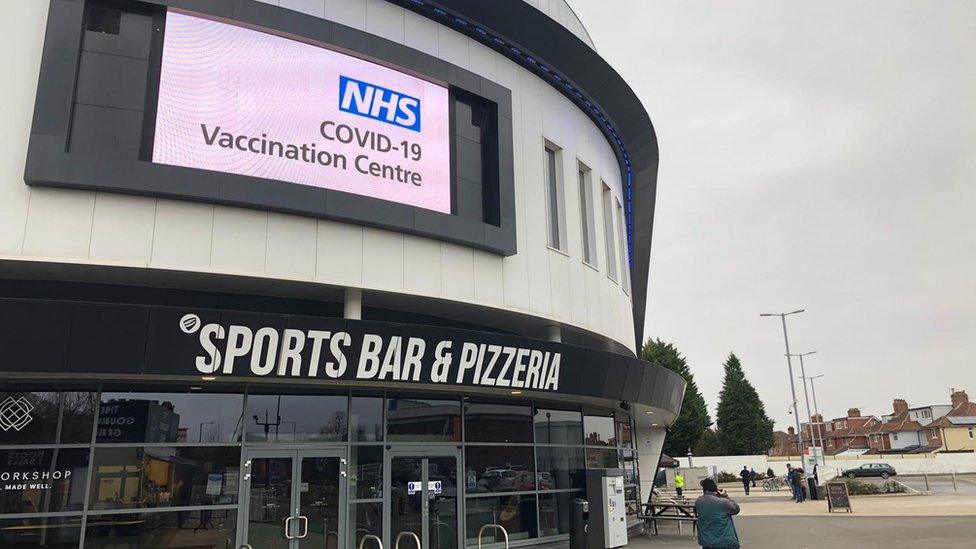
Ashton Gate Stadium in Bristol is one of seven mass vaccination centres across England
Ashton Gate's South Stand concourse will be open for 12 hours a day to deliver thousands of vaccines.
On a visit to the stadium, prime minister Boris Johnson said about two million people have been vaccinated with about 2.4 million injections across the UK.
He was shown around by chief nurse Anne Morris and saw Caroline Cook, a volunteer community first responder, being injected with the Oxford-AstraZeneca vaccine.
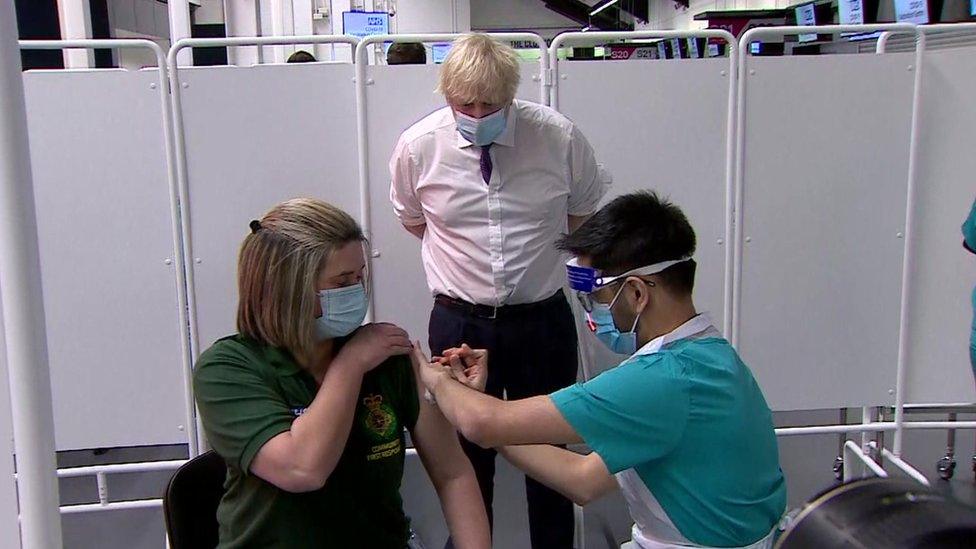
Boris Johnson saw Caroline Cook, a community first responder, being given the coronavirus vaccine
The PM also met John and Hazel Watson, 81 and 82 respectively, shortly after they had been vaccinated.
Mrs Watson, from Almondsbury, South Gloucestershire, said: "It was just really exciting, [it is] a great relief to know we have some protection against this virus.
"It's all beginning to move and the lights are at the end of the tunnel."
She added: "I look forward to [seeing family]. We have grandchildren and great grandchildren and not being able to see them is very hard."
Mr Watson said: "We FaceTime with them and we're lucky that we can do it - lots of other families can't. But you miss the cuddles and the little conversations."
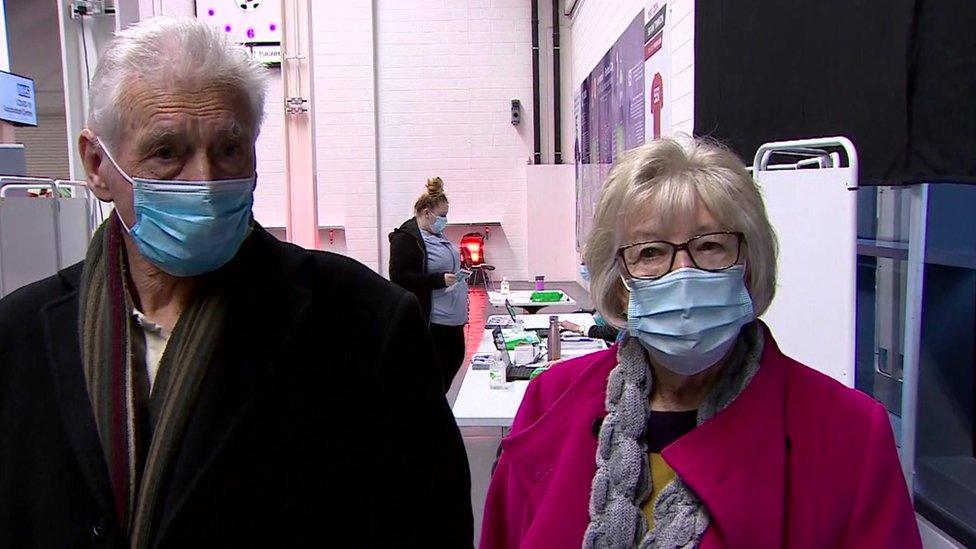
The prime minister met John (left) and Hazel Watson, from Almondsbury, South Gloucestershire
Sue Jones, a retired nurse who is now employed by the North Bristol NHS Trust to help with the vaccine effort, was one of the first people to be vaccinated at Ashton Gate.
The 57-year-old shielded during the first lockdown and said she was "really pleased" to receive her first vaccination ahead of a second in about 10 to 12 weeks' time.
She said the process at Ashton Gate was "amazing, very quick and very smooth".
"As a nurse and the member of the public, the impact [of the vaccine] is going to take time.
"It's going to be a while before we get through people who are really high risk and the older age groups and before we get to those of a working age.
"I think we just need to be patient", she said.
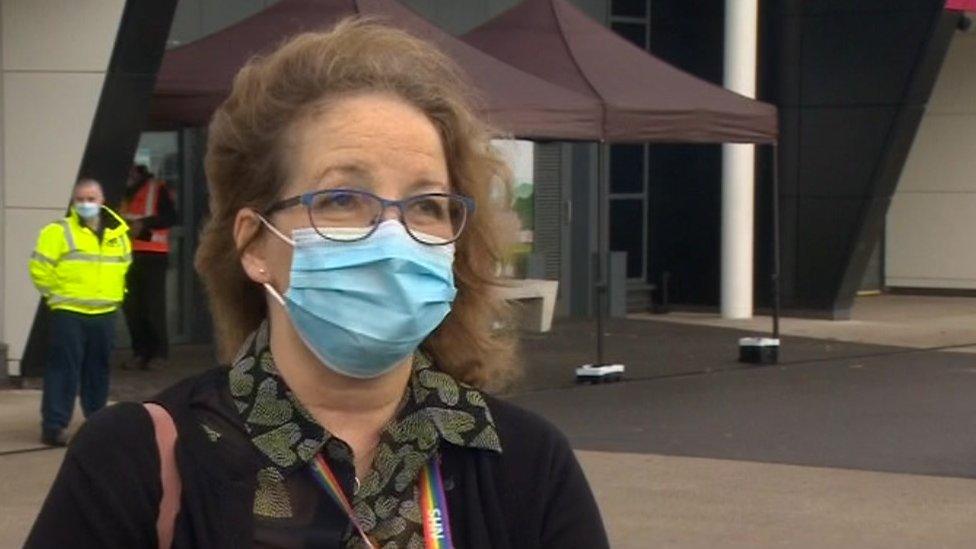
Sue Jones, a retired nurse helping with the vaccine effort, was vaccinated on Monday morning
Mike Granatt, the former head of the Civil Contingencies Secretariat in the Cabinet Office, said he expected "a bit of slippage" across the country over coming weeks.
He told BBC Radio Somerset: "I hope [the target is] doable. I think we've got to watch that people aren't overpromising with this.
"We can be optimistic that it can be done if everything works smoothly, but nothing ever works smoothly so I'd expect there to be a bit of slippage.
"But I'd also expect the government to level with us when the slippage starts to happen."
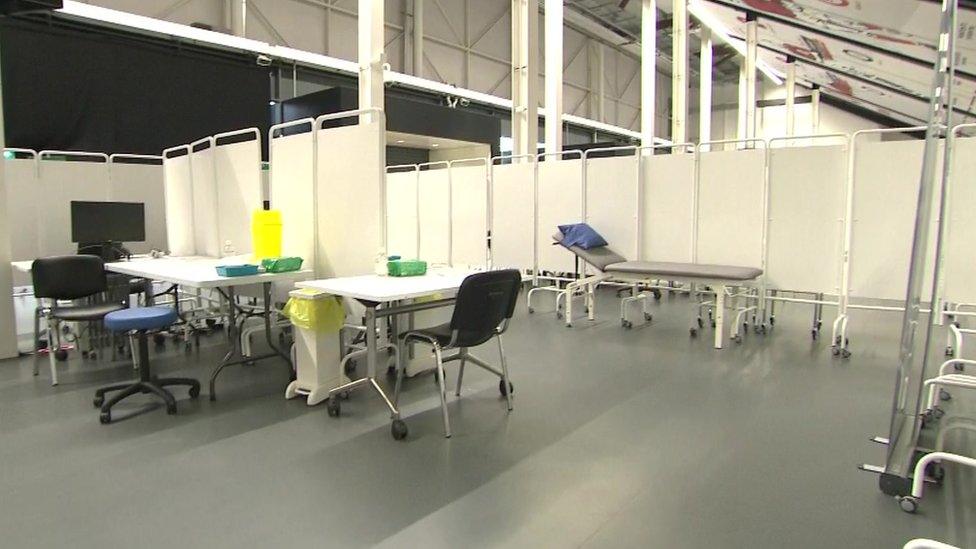
Ashton Gate's South Stand concourse has been converted to help with the vaccination drive

LOOK-UP TOOL: How many cases in your area?
YOUR QUESTIONS: We answer your queries
GLOBAL SPREAD: How many worldwide cases are there?
THE R NUMBER: What it means and why it matters

Related topics
- Published11 January 2021
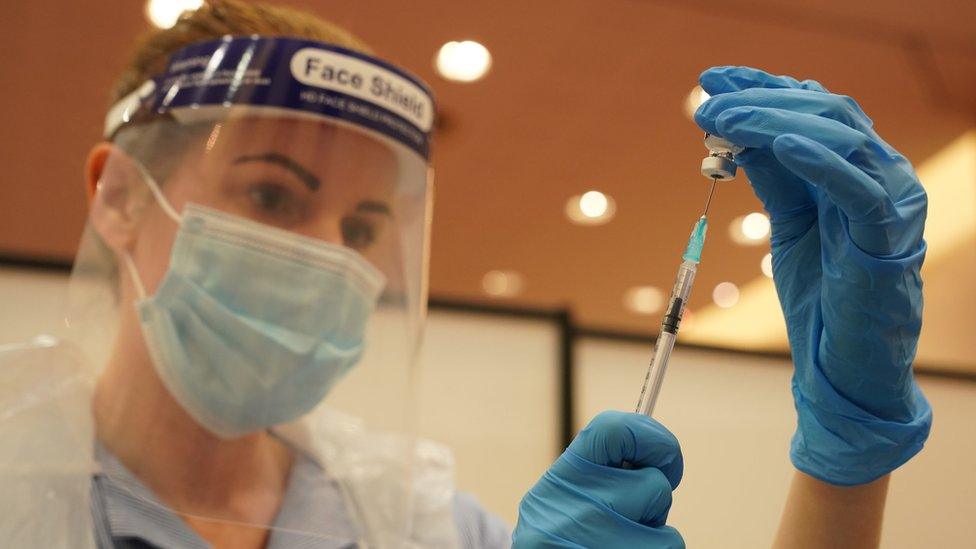
- Published10 January 2021
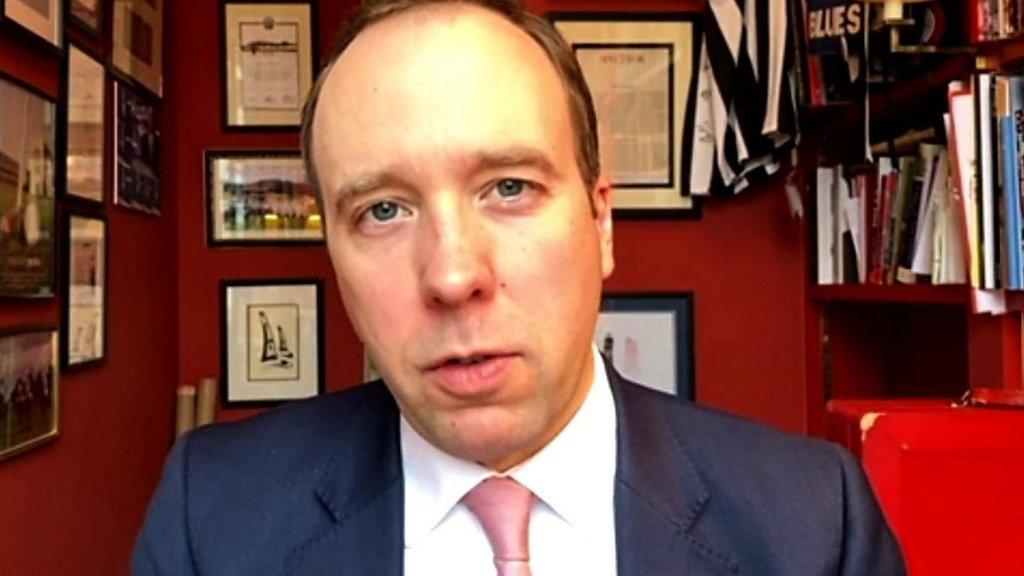
- Published10 January 2021
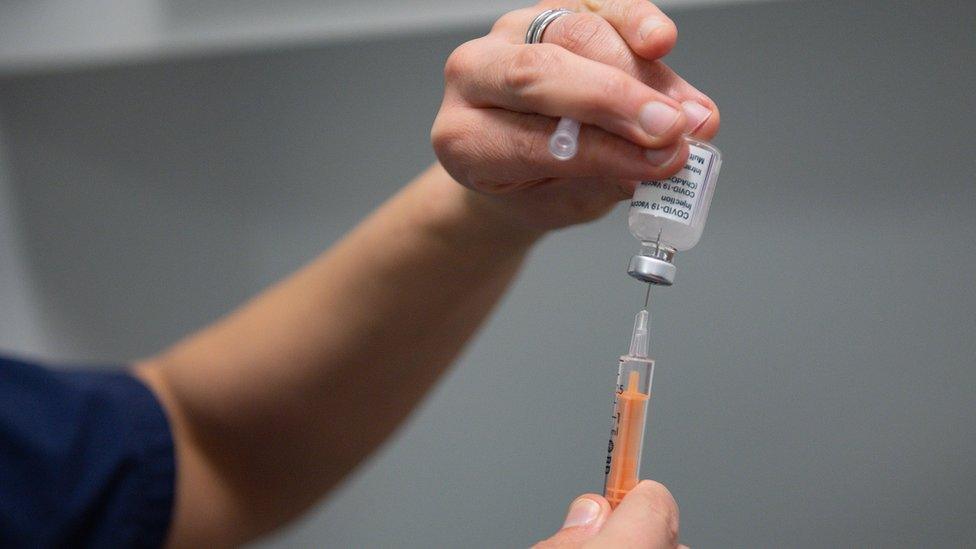
- Published8 January 2021
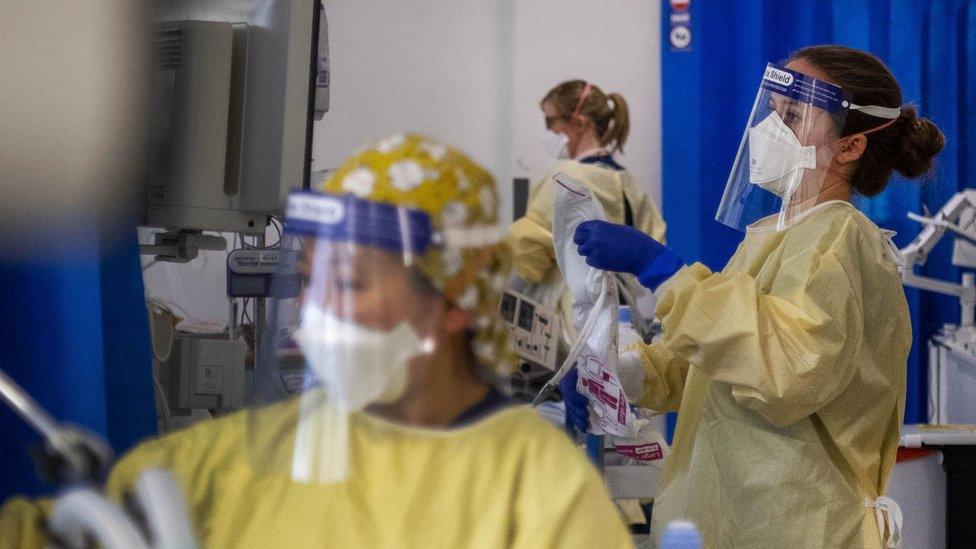
- Published8 January 2021
